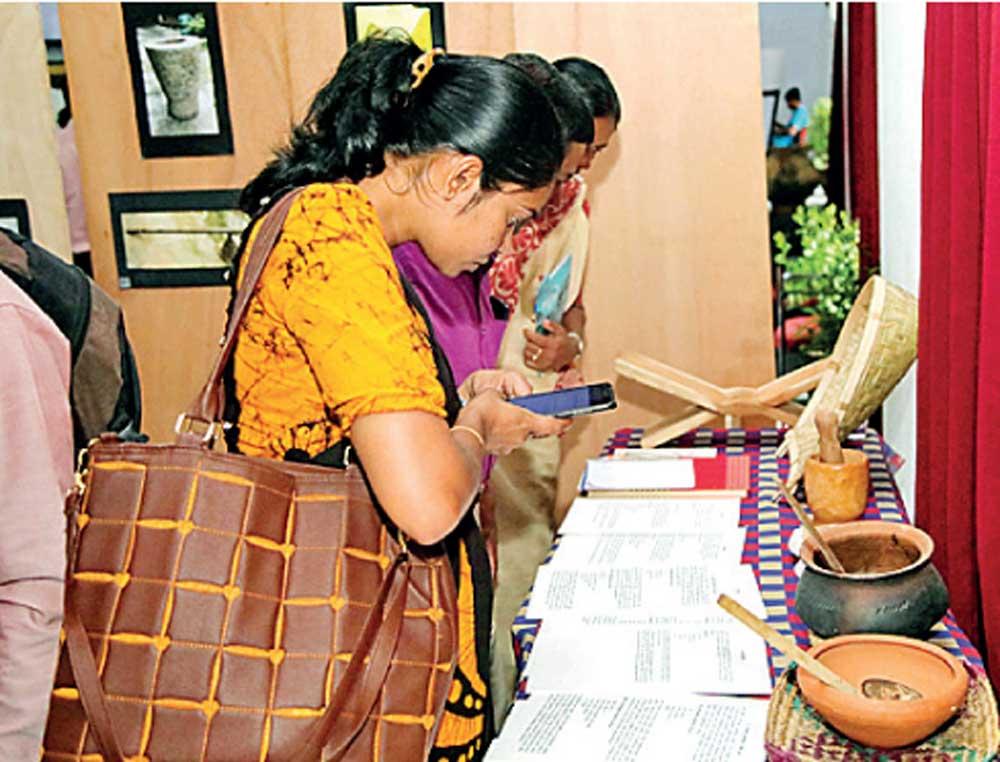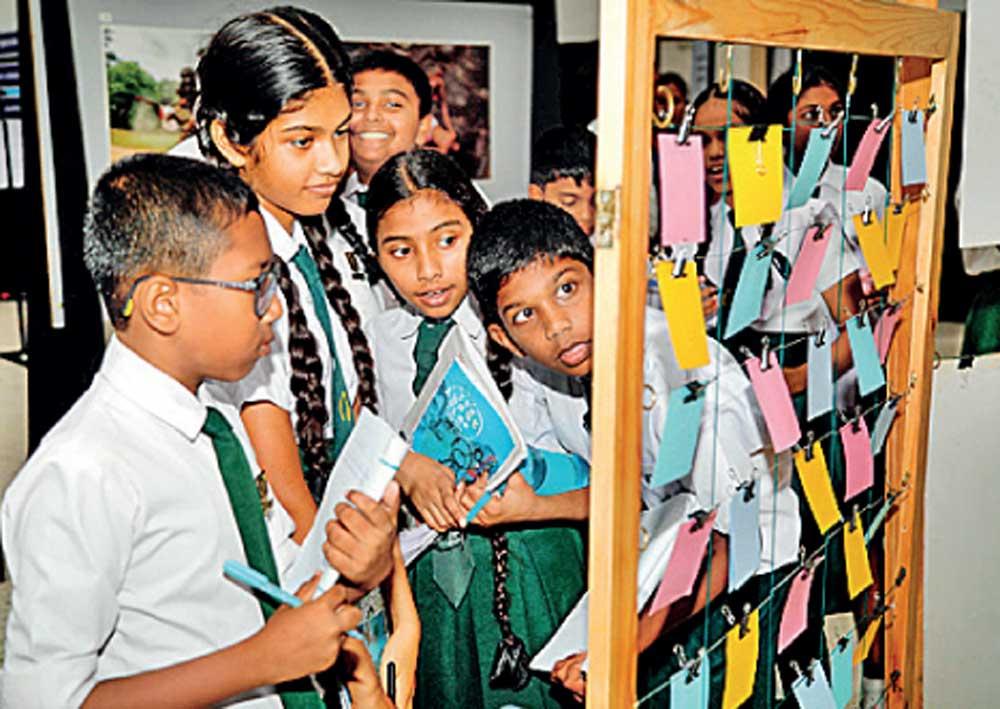Students displaying stamps at a museum
Visitors taking a close look at some of the artefacts
Students at a It’s About Time Travelling History Museum
For many Sri Lankan students history is a boring subject. It’s About Time is a travelling history museum that can change how most of them feel. This unique museum challenges how we as students and adults who once studied history think about the subject. Having visited Kandy, Kurunegala, Badulla, and Batticaloa It’s About Time Travelling History Museum will travel to Mannar from September 4- 11. Entrance to the museum at the Mannar Town Hall will be free for visitors. The museum will be open from 8 am-5 pm.
One of the unique features of the museum is that it asks visitors probing questions. As we enter, we are asked to reflect on the question “Who Am I?” Then we are asked to find the connection between what we learn as history and our experience of history. We ponder on questions such as “Do sources matter?” and “What is my role in creating history?”
Exhibits
The exhibits of the museum are collections of artifacts and stories from ordinary people. Unlike in a traditional museum experience at It’s About Time, we’re permitted to touch, smell, taste, listen, and interact with each exhibit. Many museum visitors like Lakmi Ariyaratna from Kurunegala find that the museum is different from what they expect. “Before I visited the museum I had a completely different idea, but once I came, I realised this is a unique concept.”
S. Jeevamalar from Kandy feels lucky to have experienced the museum. “I learned so much. I can now go and tell my children what I saw, things that they don’t learn in school.” Whether we are reading history through stamps, writing down our family recipe for Pol Sambol (coconut sambol) in the Kussi Mulla (Kitchen corner) or tracing ancient Sinhala and Tamil letters in the sand at the “Scripted” exhibit, all senses are engaged in learning about multiple narratives of history in a real, tactile way.
Community leaders
To ensure the museum works in each of the locations it visits, there is a group of dedicated community leaders who form a sounding board. This team ensures that all exhibits are appropriate for their communities. They also provide input for a few exhibits that feature the historical or famous landmarks and customs in each of the museums’ locations. Another group of people that make the museum a great experience is the team of youth volunteers. They are trained to walk visitors through the museum and explain exhibits if needed. They have smoothly guided over twenty-one thousand visitors of each of the locations to date.
Several fringe events are also held alongside each museum to explore history through art and culture. Film screenings, drama, theatre, dance, and musical performances celebrate the unique history of each location. Celebrating the diversity and richness of these artistic forms, each performance is followed by a discussion with the audience. Three side events will take place in Mannar.
The events
1) A stage play ‘Burning’ Directed by K. Saththiyaseelan on 5 September at 2 pm at the Town Hall.
2) A film screening- Her, Him, The Other on 7 September at 2 pm at the Town Hall.
3) Contemporary theatre performance- I’m Hungry Too produced by Kalam Space for Cultural Encounters with the assistance of the Goethe Institute Sri Lanka on 10 September at 2 pm at the Town Hall.
A dialogue session will be held after each of these fringe events with the audience. Entrance for the museum and the fringe events are free.
The It’s About Time Traveling History Museum is implemented by Search for Common Ground (SFCG) with the Collective for Historical Dialogue & Memory (CHDM) playing a technical advisory role. The initiative is supported by the Strengthening Social Cohesion and Peace in Sri Lanka (SCOPE) program.
The It’s About Time Travelling History Museum was designed and piloted by CHDM’s predecessor Historical Dialogue, which was part of the Strengthening Reconciliation Processes in Sri Lanka (SRP) program. Both SRP and SCOPE are co-funded by the German Federal Foreign Office and the European Union and implemented by GIZ in partnership with the Government of Sri Lanka.


